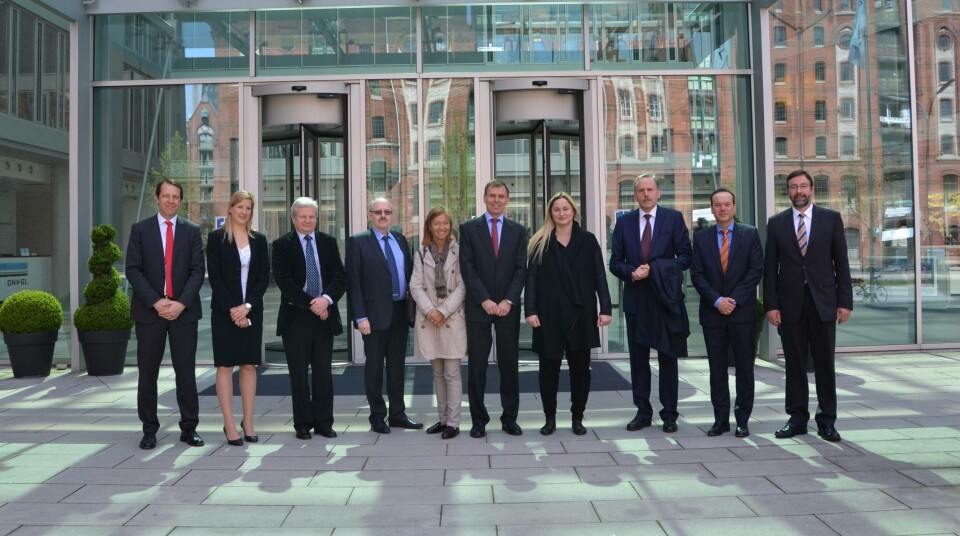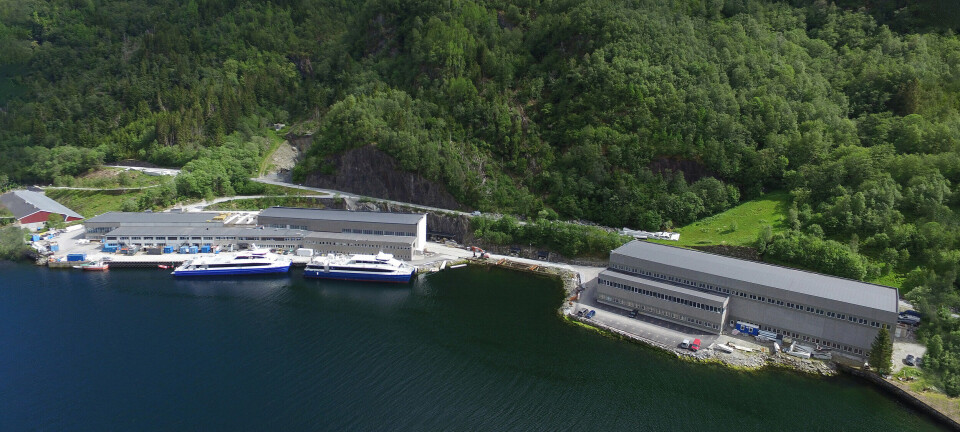
DNV GL hosts Norwegian State Secretary in Hamburg
Denne artikkelen er tre år eller eldre.
High ranking state officials from Norway met with the senior management team at DNV GL’s maritime headquarters in Hamburg today. Tor Svensen, CEO, Knut Ørbeck-Nilssen, COO, and Torsten Schramm, President of DNV GL – Maritime, shared the classification society’s experiences with liquefied natural gas (LNG) as a fuel for shipping with Norwegian State Secretary Dilek Ayhan and spoke about the potential LNG may have for the future of the global maritime industry.
The visit took place before the “Ways to Green Shipping in Norway – A path to be taken by Germany?” event held in the Hafen Club Hamburg. Organised by the German Maritime Cluster and the National LNG Initiative the event brought together experts and governmental representatives from Germany and Norway to examine potential avenues to a more sustainable maritime industry.
DNV GL is a global leader in developing alternative fuel concepts, especially in the use of LNG as ship fuel. Of the 62 LNG fuelled ships in operation and 77, which are currently on order, 79 belong to DNV GL class. LNG is considered one of the most important alternative fuels to help the shipping industry reduce its environmental impact as vessels operating on LNG have greatly reduced SOx, NOx and particulate emissions while emitting less CO2.
Currently, DNV GL is working on a number of projects utilising LNG as a ship fuel, including a ferry newbuilding project for the German owner AG Ems, a RoRo Ferry that is being built by the Flensburger Schiffbaugesellschaft (FSG) and will operate in Australia as well as a series of “LNG ready” very large container vessels for the United Arab Shipping Company (UASC). DNV GL is also working closely with many national governments, especially those in Norway and Germany, to develop sustainable solutions for shipping and regularly advises shipping companies on cost-effective technology solutions to achieve compliance with environmental regulations.
By 2016, all the European Union’s Member States will have to specify in their national policy frameworks which maritime and inland ports are to provide access to LNG refuelling points. This comes as a result of the “directive for the deployment of the alternative fuels infrastructure", which requires Member States to provide a minimum infrastructure for alternative fuels such as electricity, hydrogen and natural gas, as well as common EU-wide standards for equipment needed and user information. DNV GL is currently involved in drawing up a master plan for LNG bunkering stations along the River Rhein. This plan will be presented by the end of this year.
At the LNG event in the Hafen Club Narve Mjøs, Director Battery Services & Projects at DNV GL – Maritime, presented the recently launched “Green Coastal Shipping Program”, a joint effort by industry and authorities to promote the use of alternative fuels and green technologies to advance the efficiency and reduce the environmental impact of coastal vessels in Norway. Additional speakers included the Norwegian State Secretary Dilek Ayhan, her German counterpart Uwe Beckmeyer, as well as representatives from the Port of Oslo, the Hamburg Port Authority, Hapag-Lloyd, the German Shipowners Association, and other industry and governmental representatives.
For more information about the Green Coastal Shipping Program, see here: https://www.dnvgl.com/news/norwegian-joint-effort-to-ensure-green-coastal-shipping-9918
A delegation from Norway, including State Secretary Dilek Ayhan (4th from the right), met with Tor Svensen, CEO DNV GL – Maritime (5th from the right) and the senior management team at the DNV GL maritime headquarters in Hamburg today.











